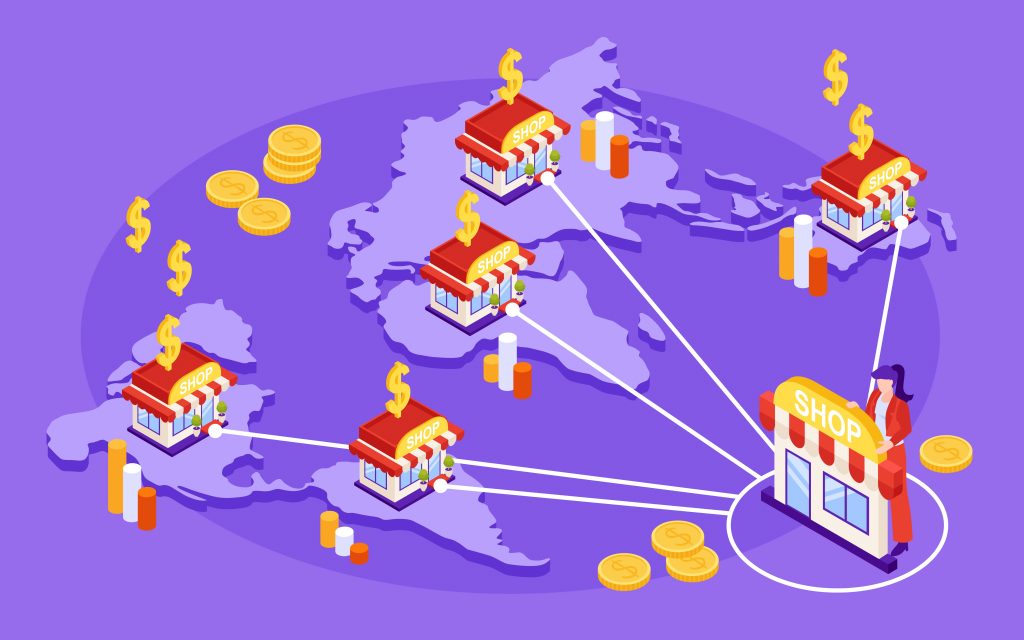Have you ever heard of reciprocal links in the context of SEO and wondered whether they could be an asset or a liability for your website? Reciprocal links have long been a debated subject among digital marketers and website owners. On one hand, they seem like an easy way to get backlinks, but on the other hand, they can also come with risks. So, should you avoid them altogether, or is there still a place for them in your SEO strategy?
Table Of Contents
- What Are Reciprocal Links?
- The Shift in Search Engine Algorithms
- Why Are Reciprocal Links Risky?
- When Are Reciprocal Links Okay?
- Best Practices for Link Building in 2024
- Conclusion
- FAQs
In this blog, we’ll break down exactly what reciprocal links are, when they might work, and why they could also hurt your rankings if misused. By the end, you’ll have a clear understanding of whether reciprocal links should be part of your SEO toolbox or whether they’re best left behind.

What Are Reciprocal Links?
In simple terms, reciprocal links are links between two websites where each site links to the other. It’s like an agreement: “I’ll link to you if you link to me.” In the early days of SEO, reciprocal linking was one of the primary ways to improve a site’s ranking in search engines. The more links a website had, the higher its authority, which in turn helped boost its visibility on search engine results pages (SERPs).
Reciprocal links used to be a common practice, and many websites relied heavily on this strategy. For instance, businesses or bloggers in similar niches would trade links with each other as a means of gaining exposure. However, as Google and other search engines evolved, they became more sophisticated in determining the quality of links. What started as a simple linking practice eventually turned into a link-building technique that could be easily abused.
The Shift in Search Engine Algorithms
As Google refined its algorithm over the years, it began to prioritize the quality of backlinks over sheer quantity. This means that Google doesn’t just care about how many backlinks a website has, it cares about where those links come from. Links from authoritative, relevant, and trustworthy sites are now much more valuable than a link exchange between two random websites.
This shift in priorities made reciprocal links a less effective strategy. If two websites exchange links simply for the purpose of boosting SEO, search engines can often detect this pattern and may devalue those links. In some cases, excessive reciprocal linking can even result in penalties, which would cause a significant drop in search engine rankings.

Why Are Reciprocal Links Risky?
While reciprocal links can still have some value in certain situations, they come with several risks that you should be aware of before using them as part of your SEO strategy. Here are some of the primary reasons why reciprocal links can be problematic:
1. Google’s Strict Guidelines
Google’s algorithms are designed to detect unnatural linking patterns. Reciprocal links, when overused or abused, are considered part of a link scheme, which violates Google’s guidelines. A link scheme involves any attempt to manipulate search rankings by exchanging or buying links in a non-organic manner.
If Google detects a pattern of link exchanges that appear artificial, it could lead to a penalty. This penalty could take the form of a drop in rankings or, in the worst case, removal from the search index altogether. It’s a risk you definitely want to avoid.
2. Loss of Trustworthiness
If you’re exchanging links with irrelevant or low-quality websites, it can tarnish your site’s credibility.
Link relevance is crucial for SEO today. If you link to websites that aren’t directly related to your industry or niche, you risk associating your site with low-quality content or even spammy sites. This can harm your reputation and lead to a decrease in your site’s trustworthiness.
3. The Quality of the Link Matters More Than the Quantity
In the early days of SEO, building a massive number of links through reciprocal agreements could give your site an edge. But today, quality is paramount. Having one link from a high-authority site is far more valuable than dozens of reciprocal links from unrelated, low-quality websites.

Search engines like Google now prioritize the relevance and authority of the websites linking to you. Therefore, a reciprocal link may not carry as much weight as a single, well-placed backlink from a reputable source.
4. Dilution of Link Value
Reciprocal links can dilute the effectiveness of the links you’re building. When two sites exchange links, they’re essentially sharing their link equity with each other. This means that the authority transferred through each link is split between the two sites. The result is a less valuable link than a one-way backlink from a high-quality, authoritative site.
5. Risk of Linking to Low-Quality Sites
If you’re not careful about who you exchange links with, you could end up linking to low-quality or irrelevant websites. This could not only harm your SEO efforts but also impact your users’ experience. Google evaluates the quality of your entire link profile, so linking to questionable sites can trigger penalties or hurt your rankings.
When Are Reciprocal Links Okay?
Despite the risks, there are situations where reciprocal links can be used effectively. It’s all about the context and how you approach these link exchanges. Here are a few scenarios where reciprocal links can be acceptable:

1. Mutual Benefits in Related Niches
If you’re in a related niche and you both share a similar target audience, a reciprocal link can be beneficial for both parties. For example, a website about fitness might exchange links with a site about healthy eating, as both sites would have a relevant audience interested in wellness.
The key here is that the links should be relevant, and both sites should genuinely benefit from the exchange. The content should be complementary, and the link should feel natural rather than forced.
2. Local Business Link Exchanges
For small, local businesses, reciprocal linking can still be a useful tactic. For instance, if two local businesses are in a similar area but don’t directly compete, they might consider exchanging links to help promote each other. This can be particularly effective in local SEO, where community involvement is important.
3. Content Sharing and Resource Pages
If you have a valuable resource or informative article, and another site wants to link to it in exchange for a link back to their own content, that can be a legitimate reason for a reciprocal link. As long as both links offer value to users and are relevant to the content, this can be an acceptable form of link exchange.

4. When Used Sparingly
A few reciprocal links here and there are not going to ruin your SEO efforts, especially if they’re done correctly. It’s when reciprocal linking is used excessively or inappropriately that it can harm your site. Be selective, and focus on quality over quantity.
Best Practices for Link Building in 2024
Now that you understand the potential risks of reciprocal links, it’s time to look at best practices for building a healthy, high-quality link profile. Here are some strategies that are far more effective than relying on reciprocal links:
1. Focus on High-Quality, One-Way Backlinks
Instead of trading links, prioritize earning one-way backlinks from authoritative sources. These types of links hold far more value because they’re earned rather than given in exchange for another link.
Focus on creating valuable, shareable content that naturally attracts backlinks from reputable websites in your industry. This could be blog posts, case studies, infographics, or research papers that others in your niche will want to link to.
2. Guest Blogging and Content Collaboration
One of the best ways to build backlinks is through guest blogging or content collaborations. By contributing valuable content to other websites in your industry, you can earn high-quality backlinks while establishing yourself as an authority in your field.

When doing guest blogging, make sure that the content is relevant, high-quality, and provides real value to the readers. The backlinks you gain from these types of posts will be far more effective than any reciprocal link exchange.
3. Engage in Influencer and Outreach Marketing
Building relationships with influencers, thought leaders, and bloggers in your industry can lead to natural, valuable backlinks. Engage in outreach campaigns where you pitch your content, ideas, or collaborations to relevant people who might be interested in linking to your content.
4. Create Linkable Assets
Another effective way to gain backlinks is by creating “linkable assets.” These are content pieces that are specifically designed to attract backlinks, such as comprehensive guides, research studies, or infographics. These types of content are more likely to be shared and linked to by other sites in your niche.
Conclusion
While reciprocal links can still have some value in specific situations, they should not be relied upon as a core part of your SEO strategy. Focus on building high-quality, one-way backlinks through content creation, guest blogging, and relationship building.
The key to successful SEO is ensuring that your backlinks are relevant, authoritative, and earned naturally. By moving away from reciprocal link exchanges and adopting more effective strategies, you’ll build a stronger, more sustainable online presence that stands the test of time.
Whenever you think about SEO strategies and guides, remember to look up Battle SEO!
FAQs
- Are reciprocal links still effective for SEO in 2024?
Reciprocal links are less effective than they used to be. Google prioritizes one-way backlinks from authoritative and relevant websites.
- How can I avoid Google penalties with reciprocal links?
To avoid penalties, use reciprocal links sparingly, ensure the links are relevant, and focus on earning high-quality backlinks from reputable sites.
- What are the risks of using too many reciprocal links?
Excessive reciprocal links can lead to penalties from Google, a decrease in rankings, and a loss of trustworthiness for your website.
- What should I focus on for link-building in 2024?
Focus on earning high-quality one-way backlinks through content creation, outreach, guest blogging, and forming relationships with influencers.
- Is there any benefit to reciprocal links in local SEO?
In certain cases, reciprocal links between local businesses can be beneficial, but they should still be used cautiously and with relevance in mind.
Battle SEO – Dominate Your Market with Proven SEO Strategies
→ Tailored, Tactical SEO for Your Business
→ Top 3 Results in 30 Days or Your Money Back
→ Full-Service SEO: On-Page, Backlinks, and More
Get results that matter – start your SEO battle with us today →
⭐⭐⭐⭐⭐ Rated 4.8/5 by 32 Satisfied Clients
About Mike

Mike Guess is an accomplished marketing expert with over 15 years of experience leading various companies to digital success. He is the CEO of Battle SEO and 39LINKS.COM, overseeing bespoke SEO and digital marketing campaigns that enhance online visibility and drive client growth. He also serves as Chief Marketing Officer and partner at We Speak Meat, where he drives brand strategy and customer engagement for a premium meat retailer.
Related Articles:
Multi-Location SEO: Boosting Rankings Around Multiple Addresses
Boost Your Franchise’s Online Presence with Effective SEO Strategies


